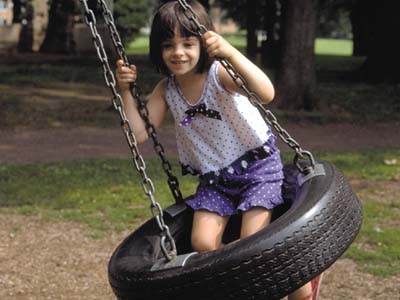New International School Breaks from Mold
Back to Contents of Issue: April 2003
|
|
|
|
by Bruce Rutledge |
|
 PETE JUDS AND MARIKO Maeda, a husband-and-wife team, have run two of the best little international preschools in Tokyo for about a decade. Juds runs the Sunshine Montessori School in Minami Azabu and Maeda runs Little People Montessori School in Yoga. But from September, the two will open an elementary school that breaks from the mold and offers several key things sorely lacking in Japan's international school scene: lower tuition, financial aid for families paying their own way and a more flexible approach toward students having troubles in the classroom. The new Montessori school will open just a short walk away from today's Sunshine School, which is tucked in behind the Korean Embassy in Minami Azabu. The first elementary "school" will consist of one class for 6- to 12-year-olds and will expand from there. "Multi-age-level classrooms have been getting a fair amount of recognition recently," Juds says, "and the New International School (opened in Ikebukuro last year) has such classrooms. We are also considering a middle school, but I will need some definite registrations before I'm going to commit to that one. We plan to get our own land and buildings within three years or so and eventually have a high school, too." Juds, originally from South Africa, took over Sunshine in 1993. In earlier talks, he has mentioned the need for international schools to reach out to families that aren't on expat packages, families like ... well, like mine (full disclosure: My 5-year-old Kimiko is a happy graduate of Little People School). Consider that tuition for most international schools starts at about $10,000 a year and can cost considerably more, with fees for registration, special levies, building development, et cetera. Paying for an international school education without corporate backing is rough if not impossible. "Tuition will be around 10 percent less than the bigger schools for the same grades," Juds says. "We will have no further charges. We are hoping ours is 'all in' aside from a one-time registration fee. We will have a financial aid program in place by September for families paying fees themselves." But even if money isn't an issue, parents often complain about the sameness of the international schools. When dealing with "troublemakers" or children with special needs, the schools show little flexibility. "Although each school has character, there are more similarities among them than differences," Juds says. "If a student or family is having a difficulty, the school expects the student or family to change to fit in to the existing structure of the school." Juds and Maeda hope they can attract parents who want their children to "think outside the box," to put it in Juds' words. And, of course, the fact that the school will be run on the Montessori system has its appeal for some parents. It's heartening to see that while the expat community is in a state of flux, at least some educators are responding to that change. |
|
Note: The function "email this page" is currently not supported for this page.






